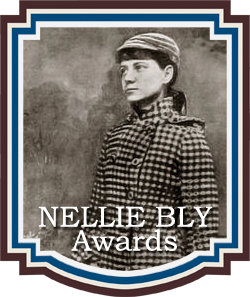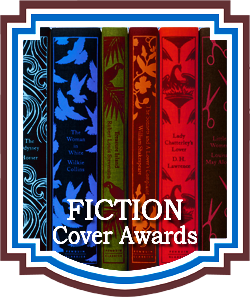|
Listen to or download this article:
|

Spiritual guidance is often difficult to talk about
No matter who you are, there’s probably some baggage in your life tied into your personal development in terms of your mind and spirit than we’d like to admit.
Have you had a spiritual journey or advice for people in their own quest for well-being?
The 2021 Mind and Spirit Awards are open through November!
Submit today!
As Self-Help books become more and more popular with books about enlightenment and well-being have made mindfulness a household term. Publisher’s Weekly puts it nicely:
“Mindfulness” is everywhere in publishing — and in American society. Its roots are in Buddhist religious practice around meditative attention — focusing on fully inhabiting the present moment without attachment to external experiences or inner emotions and thoughts. But it is also grounded in modern scientific research into the mind-body connection. Thus “mindfulness” has become fertile ground for books across multiple categories, including health, spirituality, popular science, and self-help.
Of course, there’s some overlap between the Mind & Spirit Book Awards and the I&I Book Awards. You are always welcome to submit to both, but the question of spirituality is really what drives home the difference between the two divisions.
No matter what kind of spiritual book you are writing, experience is often key
Offering support, care, and advice to people in a book is huge undertaking that should be treated seriously. In writing, be sure to be mindful of the practices you borrow from and where they lead. In teaching, the strongest instructors know how to admit they don’t know something while inexperienced teachers will often try to conceal their lack of knowledge. When people read a Mind & Spirit book, they are offering the author vulnerability, and it can help for the author to be vulnerable in return.
Publishers Weekly also offers a word of caution:
The term mindfulness can be “very fraught,” agreed Lil Copan, senior acquisitions editor at Broadleaf Books, particularly if it has been “diluted in its origin” in Buddhism. Christian authors often want to avoid acknowledging the Buddhist roots of mindfulness as a practice, connecting it instead with Christian contemplative practices they trace to the early church, or merely using “mindfulness” as a substitute for words like “presence” or, in the Quaker context, “quietude.” Still, Copan said that even amid concern about using the term, mindfulness is “such a good word. It does so much work that I can’t think of another word in which you aren’t saying 30 words or long sentences to get at what most people think of as mindfulness.”
It makes sense that such a thoughtful genre would require serious thought before jumping in, but luckily, at Chanticleer, we work with serious authors who approach their writing with care.
As always, reading in a genre helps writing in that genre. Check out our recommendations below!
GUIDED to WISDOM: The JOURNEY to EMOTIONAL HEALING
By Susan D’Agostino

Susan D’Agostino has wisdom to share, garnered from a lengthy battle with cancer and the medical establishment. This is her intimate story.
“In 2002 I found a lump in my breast, maybe the size of a pea.” Like anyone faced with a possible dire diagnosis, D’Agostino was scared and confused. Her encounters with medical people left her feeling like a statistic, and when she got the dreaded prognosis after a painful biopsy, it was accompanied by the standard recommended next steps: months of chemo and radiation treatment. Fearing the treatment almost as much as the cancer, she sought alternative healing methods.
SACRED LIFE: Healing from the Virus in Consciousness
By Bedri Cag Cetin

In his biographical work, Sacred Life: Healing from the Virus in Consciousness, Bedri Cag Cetin, Ph.D. explains his version of “The Golden Key,” a phrase he uses to formulate an “Inner Guide” which seeks above all else “…peace, happiness and harmony for all involved.”
Cetin uses his advanced education, world travels, failed and then healed personal relationships, business dealings, and training under spiritual leaders to formulate his thoughts. According to Cetin, decisions based on or that cause fear, chaos, or blame reflect Ego-driven actions in one’s journey toward inner peace; whereas using one’s Inner Guide to make decisions will result in peace and harmony.
The YOU BEYOND YOU
By Ramzi Najjar

In The YOU beyond you – The knowledge of the willing, Ramzi Najjar addresses his audience with the contemplative calm of a mystic guru and the fervor of an old-time evangelist, in a how-to guide to good health, happiness, and inner peace as a personal philosophic treatise addressing the physical and spiritual quality of life in the 21st century.
In the Preface, Najjar quickly captures readers’ attention with the question, “In a chaotic world, and a life of prevalent restlessness, how can we make sense of the non-sensical?”
THE DRUIDS
By Ilene Birkwood

The Druids are not just a fictional group of magic wielders in funny hats, but a people of ancient Celtic cultures that prosper to this day. If you are looking for a short, accessible guide to the history and way of life of the Druid people, Ilene Birkwood offers an easy to understand introduction to Druidry in The Druids: An Informal Read. Druidry is not a religion like some may think, but a way of life through peace and preservation of nature.
Druids have seen a surge in numbers in recent years as a result of people around the globe feeling dissatisfied in a world continually damaged by pollution, greed, and war. These people wish to promote a more peaceful and simpler way of life. Birkwood’s guide touches on different areas of the culture throughout the long history of the druids, such as their education system, various sacred sites, history of persecution, and, yes, their roles as witches. Birkwood even shows us how Druidry is practiced today.
COCOON of CANCER: an INVITATION to LOVE DEEPLY
By Abbe Rolnick & Jim Wiggins

When author Abbe Rolnick’s husband Jim Wiggins slipped off a ladder in 2013, he was told he had osteopenia and would need to rest his back. He and Abbe went to Africa, but the pain persisted, in fact, got worse. Finally, the author “…got the call, the one every person dreads.” Jim had cancer, a rare, aggressive form called Multiple Myeloma. The plasma in his bone marrow had increased, taking over the normal cells, causing anemia and acidity that began to eat away at his spine. Life for Abbe and Jim would never be the same. What followed was a total disruption: for Jim it involved chemo, radiation, stem cell implants, pain, weight loss, and even height loss; for Abbe, an exploration of basic fears, and, of course, the deepest terror of loss of a loved one.
Rolnick’s book is told for the most part in a series of emails among friends and family. Since she is a fiction writer (River of Angels, Color of Lies) she was able to express her feelings to others, especially to Jim, in a manner both poignant and poetic. She recounts the couple’s simple acceptance, the moments of despair, and the daily activities and routines they shared despite the discouraging limitations of Jim’s medical necessities. Whenever possible, the couple cuddled at night, exchanged kisses, watched funny, upbeat fare on television. The memoir is remarkable for these moments, balanced by the necessary, at times dreadful and dire medical information that impinged on their lives every day for a year. The couple had to live away from home, ask family for help, including cells donated by a brother, and rely on the kindness and expertise of strangers. As Rolnick puts it, “Cancer explodes with ramifications.” Jim’s round-robin emails form an especially touching piece of the narrative as he attempts to apply logic, masculine bravado and a mild sense of humor to the horrors he is experiencing.
Have a great book for the Mind and Spirit Awards? Submit by the end of November for the 2021 CIBAs!

See the 2020 Mind and Spirit Book Award Winners Here!

Looking to submit to our other Non-Fiction Divisions? See them all here!
When you’re ready, did you know that Chanticleer offers editorial services? We do and have been doing so since 2011.

Our professional editors are top-notch and are experts in the Chicago Manual of Style. They have and are working for the top publishing houses (TOR, McMillian, Thomas Mercer, Penguin Random House, Simon Schuster, etc.).
If you would like more information, we invite you to email Kiffer or Sharon at KBrown@ChantiReviews.com or SAnderson@ChantiReviews.com for more information, testimonials, and fees.
We work with a small number of exclusive clients who want to collaborate with our team of top-editors on an on-going basis. Contact us today!
Chanticleer Editorial Services also offers writing craft sessions and masterclasses. Sign up to find out where, when, and how sessions being held.
- A great way to get started is with our manuscript evaluation service, with more information available here.
- And we do editorial consultations for $75. Learn more here.
- If you’re confident in your book, consider submitting it for a Editorial Book Review here or to one of our Chanticleer International Awards here.
And remember! Our 10th Anniversary Chanticleer Authors Conference (CAC22) will be April 7-10, 2022, where our 2021 CIBA winners will be announced. Space is limited and seats are already filling up, so sign up today! CAC22 and the CIBA Ceremonies will be hosted at the Hotel Bellwether in Beautiful Bellingham, Wash. Sign up and see the latest updates here!

Writer’s Toolbox
Thank you for reading this Chanticleer Spotlight Article.
Important Links from this Article
‘Mindfulness’ Is Having a Publishing Moment from Publishers Weekly
The traditional publishing tool that indie authors can use to propel their writing careers to new levels? The Seven Must-Haves for Authors – Unlocking the Secrets of Successful Publishing Series by Kiffer Brown










Leave A Comment